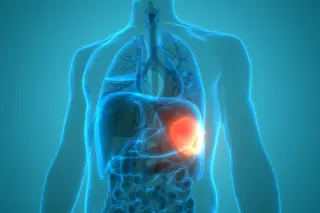The idea of using the body’s own organs as mini bioreactors to grow replacement tissue or even regenerate other organs might sound like something out of a science fiction movie, but it's already becoming reality in cutting-edge labs around the world.
A collaboration between Wenzhou Medical University, Nanjing University, and the University of Macau has taken an unexpected turn in regenerative medicine by turning to the spleen, a lymphatic organ typically overshadowed by its more high-profile neighbors. Their findings, recently published in Science Translational Medicine, suggest that the spleen could be key to growing new, functional tissues within the body. And the implications are huge, particularly for diseases like type 1 diabetes.
Roughly the size of an avocado and tucked under the left side of the rib cage just above the stomach, the spleen’s usual responsibilities include filtering damaged blood cells and supporting the immune system. It’s often considered non-essential ...















